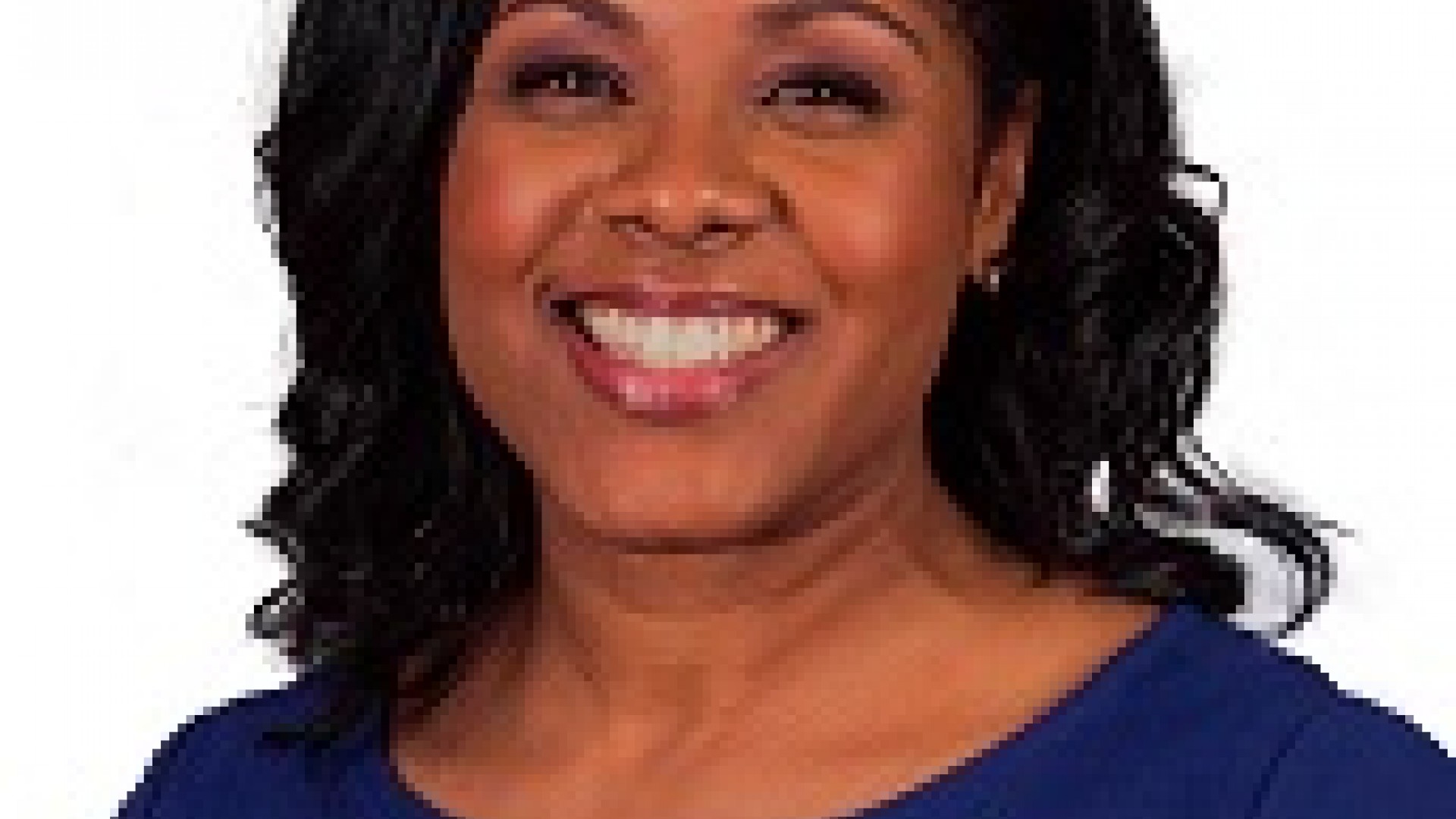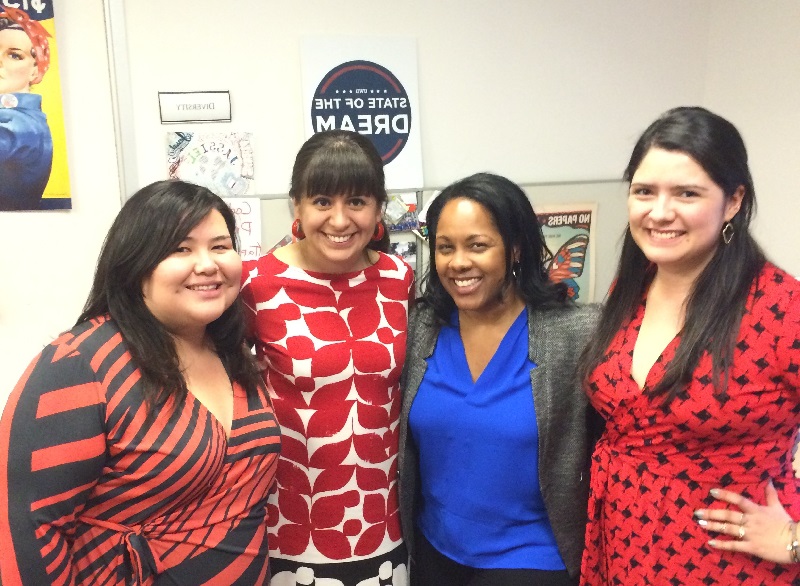
When I was seven years old, I spent hours hanging upside down from the large cottonwood tree in my front yard during those short summer months, imagining different worlds to go with the shapes of the clouds. During our endless Anchorage winters, I still spent hours outdoors, building whole new worlds out of snow.
That little black girl grew up enraptured by the blue majesty of the snow-capped mountains and the sheer vastness of the state that fueled her sense of imagination, nurturing the idea that more was possible.
My parents also raised me on their own dreams. As a child, my father had been drawn to the images of Alaska in the National Geographic magazines at the Beaumont, Texas library; my mother shared her memories of integrating the Wichita, Kansas schools. Whether helping my parents pull the levers in a voting booth or watching them take bold action against racism and bias in my elementary school, I was steeped in a rich context of history and surrounding landscape of new possibilities that still held persistent echoes of the past.
Now my interest in alternate realities is expressed through my work, at the intersection of philanthropy, public policy and public health. At Marguerite Casey Foundation, which I joined as one of Philanthropy Northwest's Momentum Fellows last fall, we build movements by funding organizations that ensure low-income communities have an equal political and economic voice through issue advocacy, organizing and leadership development. Only by ensuring that change is centered on the people most impacted by inequities will we have a collective opportunity to transform our shared reality.
Shifting Demographics, Interconnected Issues
After earning my bachelor's degree at Lewis & Clark College in Oregon, I returned to Alaska to work on public policy and community development in health, housing and energy. I was struck by the complexity and interconnectedness of multiple issues in under-resourced communities, especially in rural regions of the state where the high energy costs impacted everything from housing, food access and health access.
Anchorage has changed a lot since my childhood. With over 100 languages spoken in the local school district and a demographic shift with millennials of color quickly representing the majority in the state, it's clear that ignoring this growing diversity — excluding these new young voices and the families — would be disastrous for the state. The network of fault lines is not just geographic; they're surfacing at the community level, asking us to choose between isolation or connection.
In response to the shifting demographics, I mobilized a multi-ethnic coalition of my peers to create a youth civic engagement initiative, OurTime 2008. We reached 10,000 young people across the state and provided civic and community organizing leadership development for 100 young people from ethnically diverse communities. We built a political literacy curriculum using an “all politics is local” philosophy based in the pedagogy of hip-hop to teach organizing, issue advocacy, media literacy and direct action. The impact on the political landscape in the state was profound and continues to reverberate today through the inclusion of thousands of diverse, new, young voices and the voices of their families into the political process. It was a seminal moment for me. I had direct experience of how powerful organizing is in transforming communities and creating alternate trajectories.
Through graduate school in Baltimore and working for USAID, I've also observed similar challenges in the ability for communities to have an equal economic and political voice against the background of shifting demographics. There were similarities in large urban centers in the United States and in countries around the world. The recurring theme for me is how to sustain and support nonprofit and grassroots infrastructure for a bottom-up approach to policy change and community development.
Engaging Communities in National Conversations
Through my fellowship at Marguerite Casey Foundation, I am at the forefront of nurturing this community-led, bottom-up policy change. My role includes managing a national portfolio of grantees, working with incredibly talented and committed youth, advocates, organizers, community builders and policy experts involved in family-led movement-building across the country to give voice to the concerns of low-income families.
During my travels to Washington, D.C. in April, I was inspired by the young people leading United We Dream, a nonprofit organization Marguerite Casey Foundation funds that organizes undocumented youth who came to the United States as children and are now seeking a path to citizenship. I met a young man on their staff who had built an innovative online database to track the implementation the The Deferred Action for Childhood Arrivals (DACA), which allows young adults who had arrived in the U.S. as children and don’t currently have lawful immigration status to receive temporary work permits, Social Security numbers and protection from deportation. Their energy, talent, enthusiasm and commitment reminded me of those years spent organizing my peers in Alaska. I enjoyed sharing my story and encouraging them to not be discouraged by temporary setbacks; just by deciding to take action and organize, they are changing the trajectory for their lives and the lives of their families.

I traveled to Chicago in April, and had the opportunity to attend the Right to the City Homes for All Campaign. I learned so much by listening to perspectives on gentrification, affordable housing and the home lending crises from across the country, hearing about the ingenuity and organizing strategy around building a national movement to confront the housing crisis in its many insidious forms. The struggle to secure environmentally safe, affordable and quality housing impacts so many facets of a family, from education, employment to health and food access. And despite decades of research, we have yet to eliminate these disparities.
Based on the research and my experience in public health and public policy, I know it will only be through engaging communities most impacted across the broad spectrum of issues that impact their ability to live in healthy communities that we will begin to make progress. To that end, I am privileged to manage Marguerite Casey Foundation’s work with the National Collaborative for Health Equity, an organization at the forefront of engaging policymakers, researchers, grassroots organizations and families across a broad spectrum of social and economic issues to create communities that nurture health. As a connector, I serve as a translator for grassroots organizations about this initiative and the next wave it represents in framing a powerful conversation about poverty, community and health.
From Dreams to Realities
Growing up, my brothers and sisters and I loved playing outside in snow when it was dark, with the stars brightly shining and the snow reflecting light, looking like billions of crystals. There was a sense of abundance. There was a sense that anything is possible.
From my experience in youth organizing, I know new trajectories are possible through community organizing and advocacy. What gives me hope is that millennials, who just surpassed the boomers as the largest generation, are projected to make up 40% of the electorate in 2020 at 90 million strong. And that as a generation, we look more like today's diverse population in my home state of Alaska.
I know that by sheer force of our size, a shift is coming. To what end depends on what each of us decides to do individually and collectively. Philanthropy has an incredible opportunity to invest in these alternate realities, as they become actual reality, by supporting community organizing, advocacy and leadership development to give an equal voice to low-income families in our economic and political system.
That childhood pastime of looking up at the sky and dreaming up stories to go with the clouds has stayed with me. As an adult, I am now working to make those dreams a reality.
Elizabeth Posey is a Momentum Fellow hosted by Marguerite Casey Foundation. Read more about the Momentum Fellowship on our website, and stay tuned for more blog posts from our first cohort.
Comments
Kudos to the Foundation for
Kudos to the Foundation for supporting such wonderful and diverse programs. Collaboration and honest dialog are keys to our collective success. It sounds like a terrific use of Fellows as well.